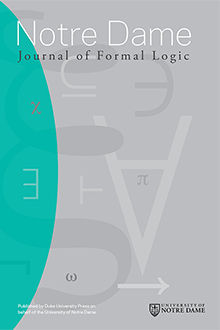Abstract
We start with Fodor's critique of cognitive science in "The mind doesn't work that way: The scope and limits of computational psychology": he argues that much mental activity cannot be handled by the current methods of cognitive science because it is nonmonotonic and, therefore, is global in nature, is not context-free, and is thus not capable of being formalized by a Turing-like mental architecture. We look at the use of nonmonotonic logic in the artificial intelligence community, particularly with the discussion of the so-called frame problem. The mainstream approach to the frame problem is, we argue, probably susceptible to Fodor's critique; however, there is an alternative approach, due to McCain and Turner, which is, when suitably reformulated, not susceptible. In the course of our argument, we give a proof theory for the McCain-Turner system and show that it satisfies cut elimination. We have two substantive conclusions: first, that Fodor's argument depends on assumptions about logical form which not all nonmonotonic theories satisfy and, second, that metatheory plays an important role in the context of evolutionary accounts of rationality.
Citation
Graham White. "Causality, Modality, and Explanation." Notre Dame J. Formal Logic 49 (3) 313 - 343, 2008. https://doi.org/10.1215/00294527-2008-015
Information





